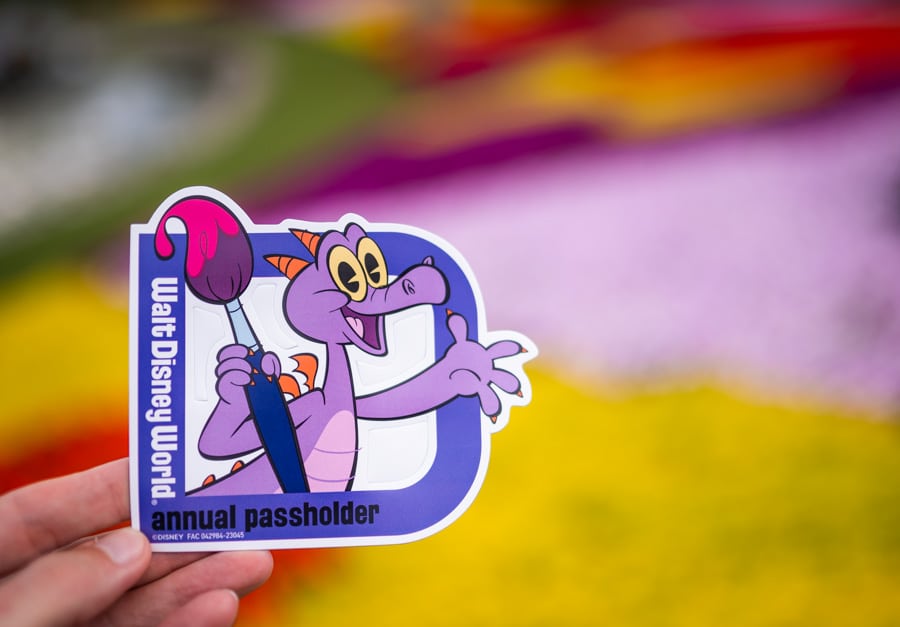

This guide to Walt Disney World Annual Passes covers what each tier offers, price increases, discounts, reservations, perks, and break even point for an AP to be “worth it” or when you should buy regular park tickets. Plus, commentary about the WDW Passholder program and everything you need to know.
There’s a ton of ground to cover here, so let’s quickly recap what has happened in the last three years with Annual Passes. Walt Disney World suspended sales of all new Annual Passes during its closure, and for over a full year after reopening. Finally, Walt Disney World resumed AP sales in Fall 2021 with new names, higher prices, restrictions, and other details. In so doing, the company dropped the straightforward precious-metal tier names in favor of a nonsensical hierarchy of fictional characters and concepts.
Annual Passes were available for about 3 months before sales started being suspended in late November 2021, which occurred simultaneous with park reservations filling up and the suspension of single and multi-day tickets around Thanksgiving and Christmas. The key difference between then and now was that Walt Disney World was still in a capacity-constrained environment and pent-up demand was running hot…
Fast-forward to earlier this year, and Walt Disney World once again resumed Annual Pass sales. Initially, there was a multi-hour wait in the virtual queue to purchase passes. At one point, Disney put up a warning message that some tiers of APs were likely to sell out on that day. That was back on April 20–it’s now mid-October and Annual Pass sales have not paused for any tiers. It didn’t happen on that day that the warning message displayed in the virtual queue, or any day since.
This is not to say it won’t happen. Thanksgiving and Christmas 2023 are right around the corner, and those holidays are likely to be busy. However, ‘revenge travel’ has been fading at Walt Disney World and the company’s executives have reported lower attendance and hotel occupancy in Florida. Accordingly, it’s our expectation that Walt Disney World AP sales will not pause again. In all likelihood, you’ll be able to buy one whenever you want without worrying that they’re going to sell out going forward.

Here are the Walt Disney World Annual Pass options for 2024:
Disney Pixie Dust Pass – This is the lowest tier pass for Florida residents costs $439 plus tax–or $22 per month with 12 monthly payments after $205 down payment on the Florida Resident Monthly Payment Program.
Disney Pirate Pass – This is the next tier up for Florida residents only, costing $799 plus tax–or $54 per month with 12 monthly payments and 0% APR after $205 down payment with the Florida Resident Monthly Payment Program
Disney Sorcerer Pass – The next tier up is for Florida residents or eligible Disney Vacation Club members, costing $999 plus tax–or $72 per month with 12 monthly payments after $205 down payment on the Florida Resident Monthly Payment Program.
Disney Incredi-Pass – This is the top tier with no blockout dates, and is the only tier of AP available for anyone to purchase, including non-Floridians and non-DVC members. It costs $1,449 plus tax–or $112 per month with 12 monthly payments after $205 down payment on the Florida Resident Monthly Payment Program.
All tiers offer the following:
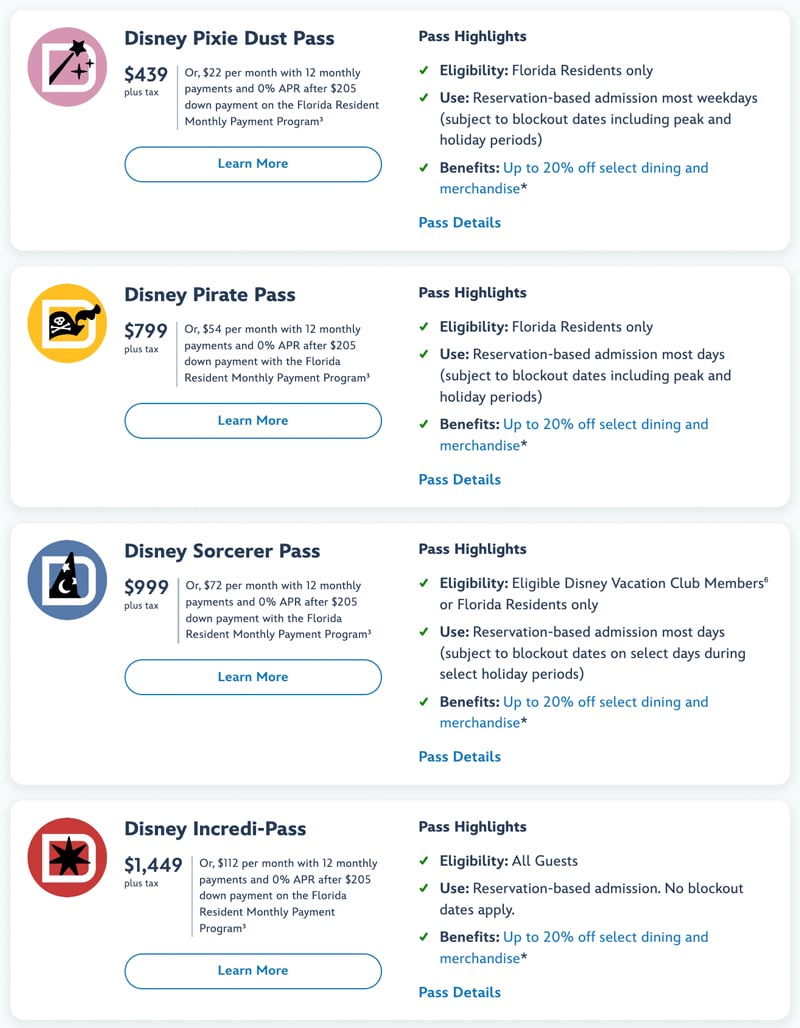
Note that Walt Disney World Annual Pass prices increased last year in mid-October. Here are the new vs. old prices:
As discussed in our 2024 Discount Walt Disney World Ticket Buying Guide, prices on admission typically increase one or two times per year, in October after the start of the company’s new fiscal year and/or in February before the start of the Spring Break season.
Due to declining pent-up demand, it’s highly unlikely that Walt Disney World will raise prices on Annual Passes again in February 2024. As such, you can expect the next price increase in October 2024. We’ve advise purchasing pass vouchers/certificates prior to then in order to lock-in current prices, but there’s not a huge sense of urgency to do that right now.

Here are some highlights of Walt Disney World’s Annual Pass program for 2024:
Please note as Walt Disney World continues to manage attendance, at any time, Annual Passes may be unavailable for purchase. Annual Passholders will also still be required to make park reservations for each day of their visit.
Now let’s turn to the specific add-ons…

Water Park and Sports Option – This includes admission to a water park, golf courses, and other sports experiences for $99 plus tax for the year. For the duration of your Annual Pass, adding the Water Park and Sports Option includes Passholder admission to select Walt Disney World experiences (with no blockout dates):

PhotoPass Image Downloads – Capture every magical moment with unlimited Disney PhotoPass downloads for just $99 plus tax for the year. With Disney PhotoPass Service, you can get everyone in the picture, with photo and video opportunities at select attractions and iconic park locations across Walt Disney World Resort.
Download digital versions today! Disney PhotoPass photos and videos that were captured in your account starting the first valid date of your Annual Pass are available for download until the pass expires. Annual Passholders also receive discounts on prints and physical product purchases.
Note: Guests purchasing the Genie+ service will also receive digital downloads of their Disney PhotoPass on-ride photos, taken in the park on the day of their purchase, at no additional charge.
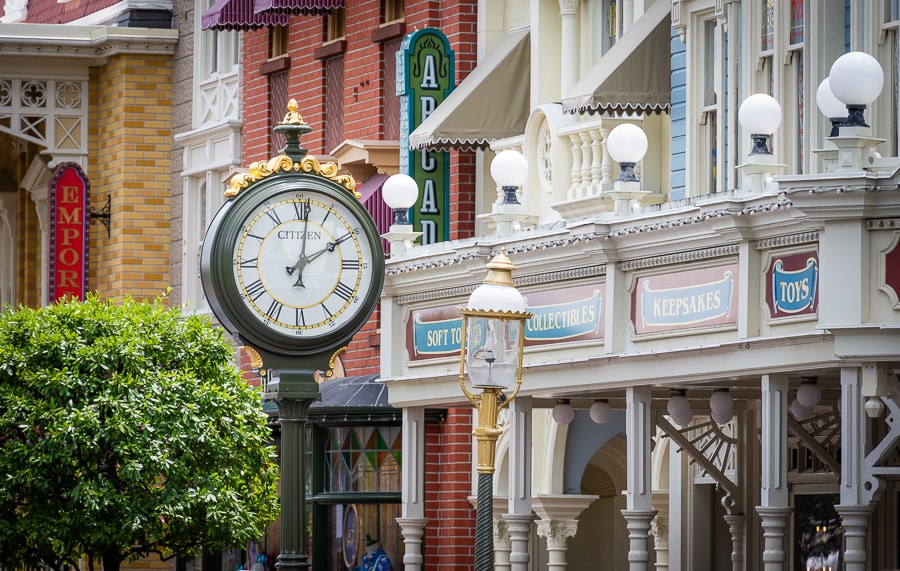
Walt Disney World Annual Passholders are now able to visit the theme parks after 2 pm without needing a Disney Park Pass reservation, except on Saturdays and Sundays at Magic Kingdom. All Annual Pass blockout dates will continue to apply.
Visiting any park before 2 pm will continue to require a Disney Park Pass reservation, as is the case currently. Moreover, Saturdays and Sundays at Magic Kingdom will work the same way as now–Annual Passholders can still visit Magic Kingdom on weekends after 2 pm if you have a park reservation (and have entered) a different park.
There’s more good news! All-day Park Hopping at Walt Disney World has been restored as of 2024. Prior to this, Park Hopper access was only available after 2 p.m. each day. Now, there will be no more waiting–you can decide when it’s time to visit another park, whether that be for an early lunch, strolling around World Showcase, seeing the first Festival of Fantasy Parade, etc.
Finally, “Good-to-go days” have rolled out as of Winter 2024. With “good-to-go days,” the theme park reservation calendar will be updated periodically and will show Annual Passholders select days when they may visit a Walt Disney World theme park without needing a theme park reservation (blockout dates will continue to apply like they do today).

If you live out of state and/or visit infrequently, you might be wondering whether it’s worth the money to purchase a Walt Disney World Annual Pass. Our answer is: no but maybe.
Before actually crunching the numbers, we’ll share our story to serve as a cautionary tale. It was ~15 years ago and we lived in the Midwest, but were visiting Walt Disney World a couple times per year. Annual Passes were a fraction of their current price, but so too were regular tickets (and the no-expiration option still existed then).
Against our better judgment, we opted to purchase Annual Passes, justifying them on the basis of discounts on merchandise and food. Once you have an AP in hand, you will use that “free” admission to justify even more trips. Trust us. You get a ‘wanna get away’ email with discount airfare from Southwest, and book a quick 3-day visit. You start doing D23 events. You join Disney Vacation Club. You get super-into photography and start a blog to expose the world to all of your crazy thoughts and obsessions. You relocate closer to the parks. Etcetera.
If you live out of state, buying an Annual Pass to theoretically save money will, without a doubt, cost you much more money in the long-term. It might also increase your happiness and quality of life. We speak from experience on all of this. So do with this information what you will.

Setting aside that unnerving or inspiring story, the math is relatively straightforward and simpler than it used to be. As of 2024, there’s only one Annual Pass that most tourists can purchase, the $1,450 Incredi-Pass. If you’re a Floridian or DVC Member, the decision of whether to purchase an AP is probably already made for you–or at least significantly easier–so we’re not even going to bother with that math.
If you’re taking a single trip to Walt Disney World in the span of 365 days, there is almost no scenario where purchasing an Annual Pass makes sense. About the only possibility is if it’s a really long trip and you want to qualify for the AP room-only discounts, which are typically about 10-15% superior to what’s available for the general public. In that case, you’re an edge case and are on your own for the math. (If you’ve already gamed it out this far, you probably don’t need my help, anyway.)
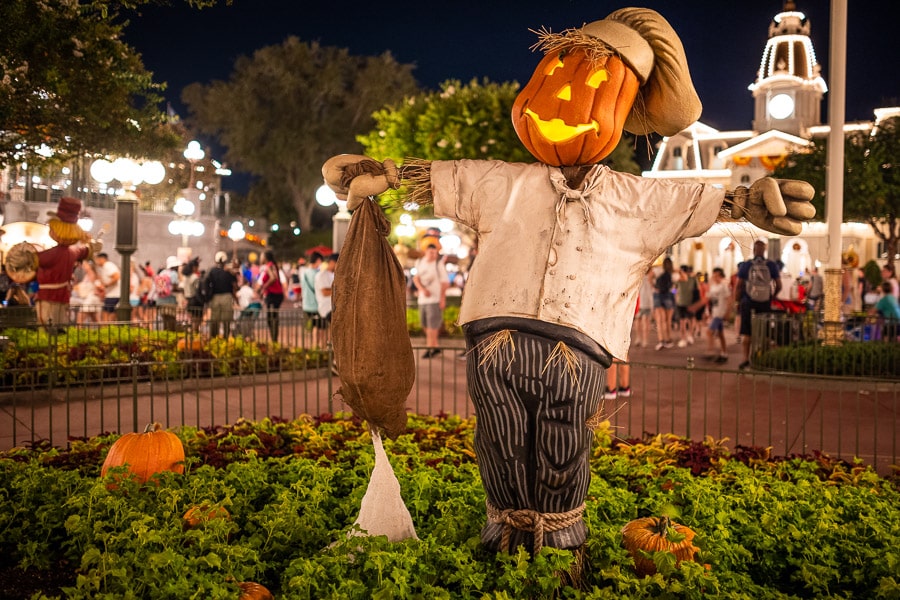
If you’re taking two trips to Walt Disney World in the span of 365 days, it becomes a much closer call. There are a lot of people who use APs for this specific purpose, taking week-long trips during the Halloween or Christmas season each year, and essentially putting one of those trips at the beginning of the window and another at the end of the window. (E.g. doing the second week of December 2024 and the first week of December 2025.)
If you’re doing two week-long trips, the Incredi-Pass will work out in your favor. You’re looking at 7-day tickets that will be over $700 each, adding up to more than the cost of the Incredi-Pass on their own. It’s an open and shut case, no further analysis needed.

The story is similar if you’re taking 3 shorter trips in the span of a 365-day stretch. Let’s say you’re doing three long-weekend trips of 3-days each. Individually, those tickets would cost you over $460 each, totaling more than the cost of the Incredi-Pass. Once again, an easy decision.
Where the numbers truly get complicated is for those planning two trips in a 365-day stretch with a combined total of 10 or fewer days…
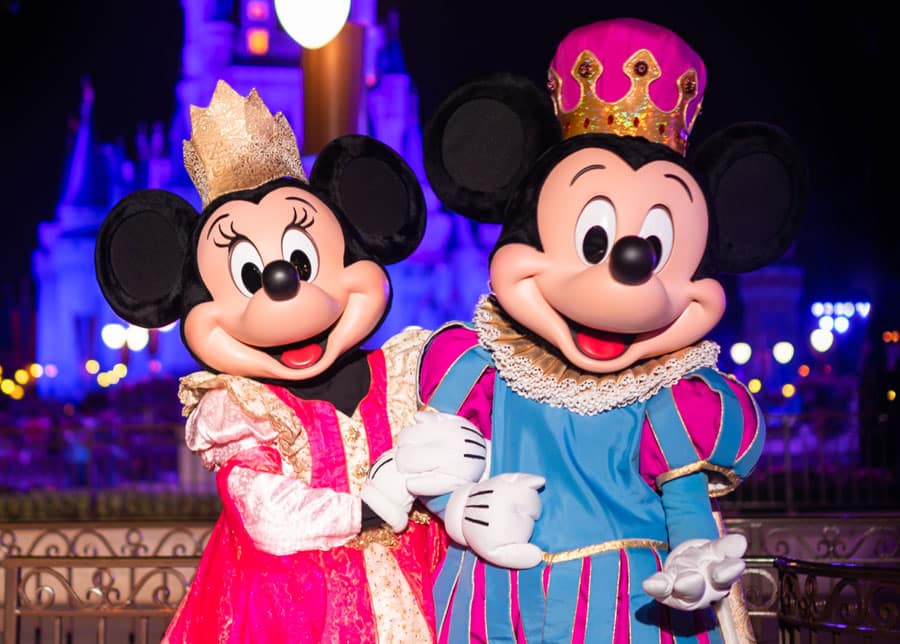
In this scenario, the cost of your tickets will actually end up being around $75 less than an Incredi-Pass. So it would seemingly make sense to purchase those instead of the AP, right? Wrong, probably.
The AP also offers discounts on merchandise & dining, which alone will easily add up to $75 saved over the course of 10 days in the parks. Beyond that, it opens up access to the aforementioned superior resort discounts or, if you won’t use those because you’re staying off-site, free parking at the theme parks.

So either way you slice it, two trips totaling at least 10 days in the span of 365 days is the likely breakeven point for the Incredi-Pass. Of course, that’s going to vary from person-to-person. We’ve heard from people who could make less work and others who couldn’t justify APs until 11 days.
However, that’s more or less the general rule. If you’re traveling more than that, it’s easy to justify Walt Disney World APs. Less than that, and it becomes much more difficult. If it’s a close call, we’d recommend purchasing passes. The money-saved via discounts and other perks, such as freebies and access to exclusive events like ride previews, does add up and is difficult to account for in your initial calculation.
Conversely, don’t let FOMO or simply wanting to be an AP cloud your judgment and cause you to fudge the numbers. Being an AP can also come with hassles, such as dealing with the wildcard of reservations and potential for your numbers being off if a future trip doesn’t come to fruition. As always, read our Tips for Buying Discount Walt Disney World Tickets post for everything you need to know about choosing the right tickets and saving money on them.
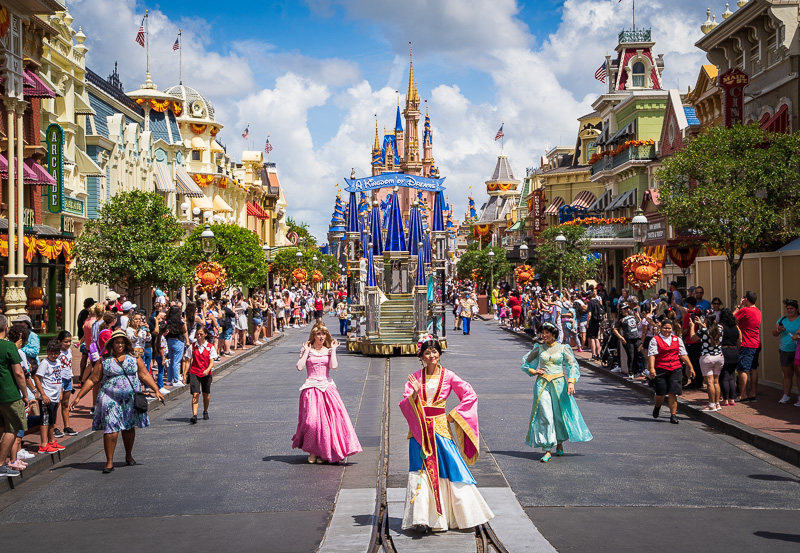
Your opinion of Walt Disney World’s AP program will likely depend upon your frame of reference. If you’ve been an Annual Passholder since the parks reopened, this all sounds pretty familiar. It’s basically a continuation of what’s currently in place, plus the “ordinary” yearly price increase.
If you cancelled your AP during the closure (or something along those lines) and haven’t had one since reopening, this probably looks totally different. A lot like the Magic Key Pass program at Disneyland, but with some tweaks. Neither outlook is necessarily wrong. This is a minor or significant change, depending upon your perspective.
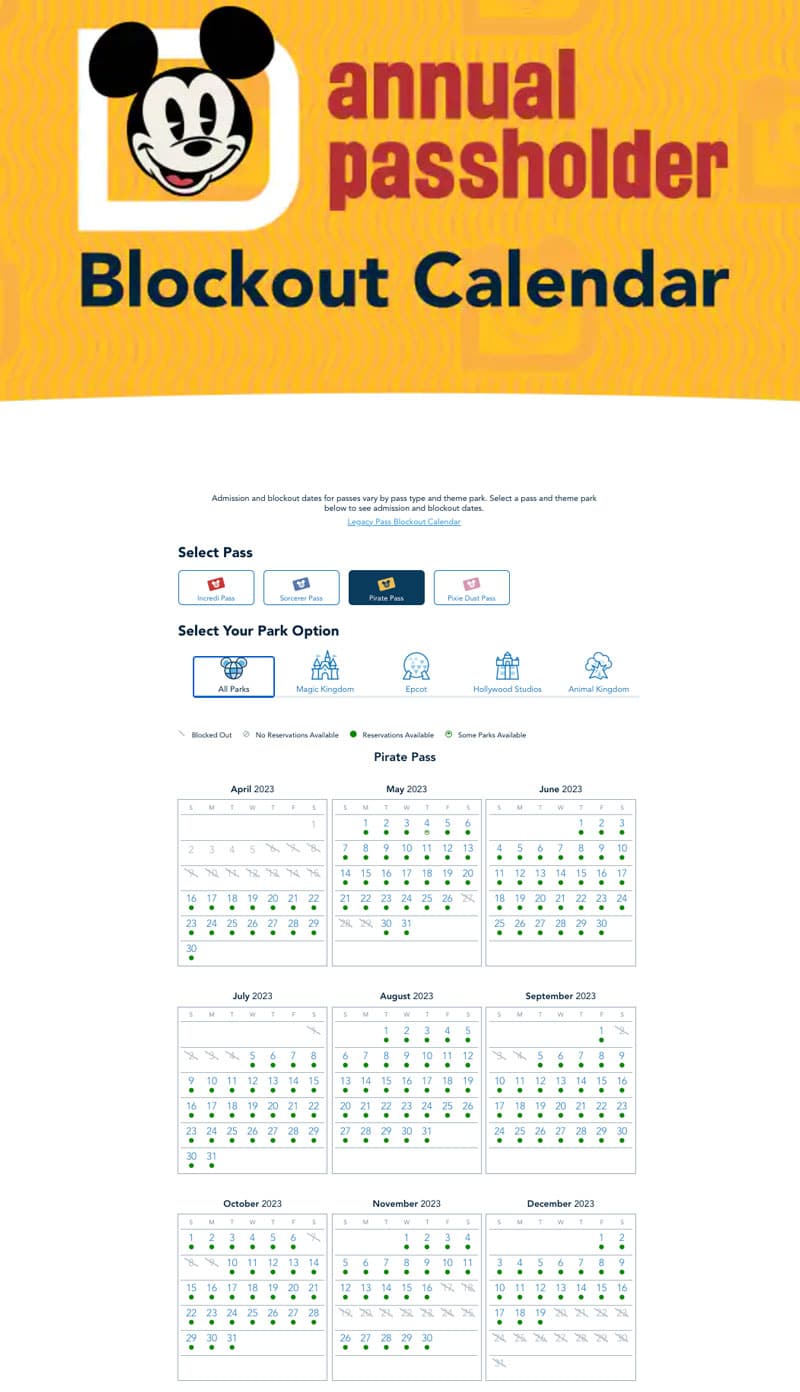
Let’s start here by addressing Disney Park Pass reservations. We’ve discussed the “necessity” of this system at length in When Will Disney Park Pass Reservations End? It would now seem like we have an answer to the titular question of that post: not in the next year-plus for Annual Passholders!
A lot of that analysis remains accurate, including the underlying motivations for Walt Disney World using a theme park reservation system, the benefits it offers, and the inconveniences it poses. However, I don’t expect you to read that whole thing in addition to this, so I’ll cover the salient point here.
Basically, Walt Disney World is nothing like Disneyland when it comes to Annual Passholders. Although some school breaks for Osceola and Orange Counties are now more crowded, it’s still nothing at all like what the California parks have experienced thanks to the millions of local APs in Los Angeles and OC, California.
When it comes to Disneyland, theme park reservations among Annual Passholders will be competitive for many dates as a result of that diehard local population. That was true with the Flex Pass, and it’ll almost certainly be true with the Magic Key Passes.
It hasn’t been nearly as much of an issue at Walt Disney World. To be sure, there will be some days that are not otherwise blocked out and will be difficult to score reservations. This has been the case on days when new attractions have opened (TRON Lightcycle Run and Cosmic Rewind) or on otherwise significant dates (May 4 at DHS, October 1 at MK or EPCOT).
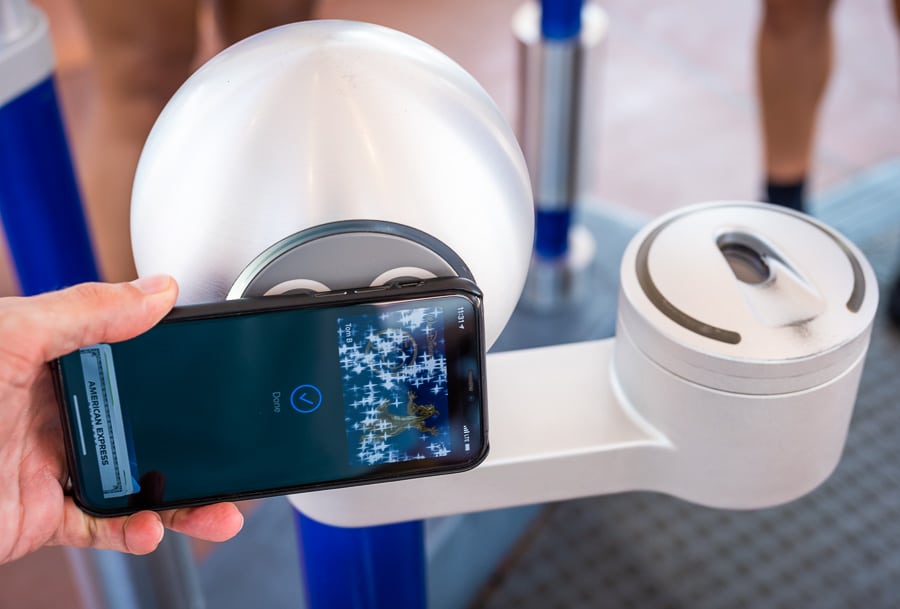
However, our expectation is that Disney Park Pass reservations will be a formality for most dates now that the parks are operating at or near 100% capacity. Personally, I would not purchase on the basis of one Annual Pass offering more simultaneous reservations–I think that’s an illusory perk or distinction among the tiers.
My expectation is that access for the overwhelming majority of dates will be dictated by the blockout calendar, and reservations will be easy to book with little advance notice. Outside of peak weeks, we’ve totally stopped bothering with booking Park Passes way ahead of time. It’s just not all that necessary anymore.
In fact, the other day when visiting Magic Kingdom, I forgot until arriving at the turnstiles–something that has happened several times. Park Pass availability has become a non-factor since Walt Disney World increased park capacity. It likely won’t matter even during peak summer season.

In terms of other takeaways, the clearest one is that Walt Disney World values the ability the manage capacity and Annual Passholder attendance. It’s also notable that they’ve made more effort to carefully target blockout dates to reflect current attendance trends, rather than just “all of summer.” (We’ve questioned that for years, saying it reflected outdated crowd patterns.)
Personally, I think this is a savvy move with an eye towards the future. In our post about Annual Passes returning, we discuss Central Florida’s population growth but also note that Walt Disney World could probably “safely kick[] the AP can down the road for a few more years if they so desire” and simply resume sales of the old passes rather than doing a full overhaul. To me, what they’ve instead rolled out seems like a fairly middle ground approach that’ll work smoothly now and keep the AP program sustainable in the years to come, avoiding the pitfalls of Disneyland’s APs, pre-closure.
While Walt Disney World has not released official numbers, the last credible count I heard was that the Florida parks had in the neighborhood of 400,000 active Annual Passes, with a disproportionate number in the top two tiers. Even if that number were to double by October 1, that’s still significantly fewer than Disneyland Resort under its old program–and with twice the number of parks to absorb those Passholders.
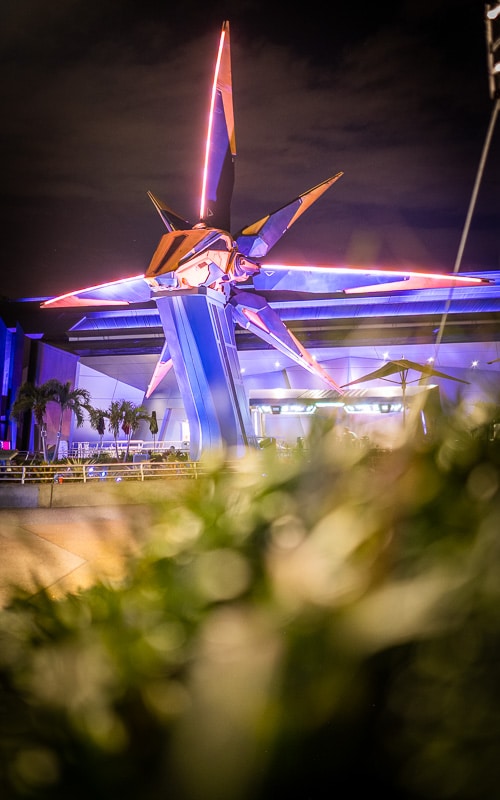
Despite significantly higher tourist numbers for most of the year, I still don’t think obtaining Disney Park Pass reservations will be an issue for the vast majority of dates. There might be some pent-up demand at first due to how long APs have been unavailable. After that, I suspect reservations will largely be a matter of going through the motions. (I’m still not convinced they’re actually needed or even valuable to Disney in the long-term, but that’s another topic for another day.)
With that said, I can understand the trepidation in dropping hundreds or over one-thousand dollars with no assurances of access. That’s a pretty big leap of faith and I’m not sure Walt Disney World has earned that level of trust or confidence with its reservation system track record. While the Disney Park Pass system works well now, there were a couple of months last holiday season and again this spring break when attendance was capped and things were rough.
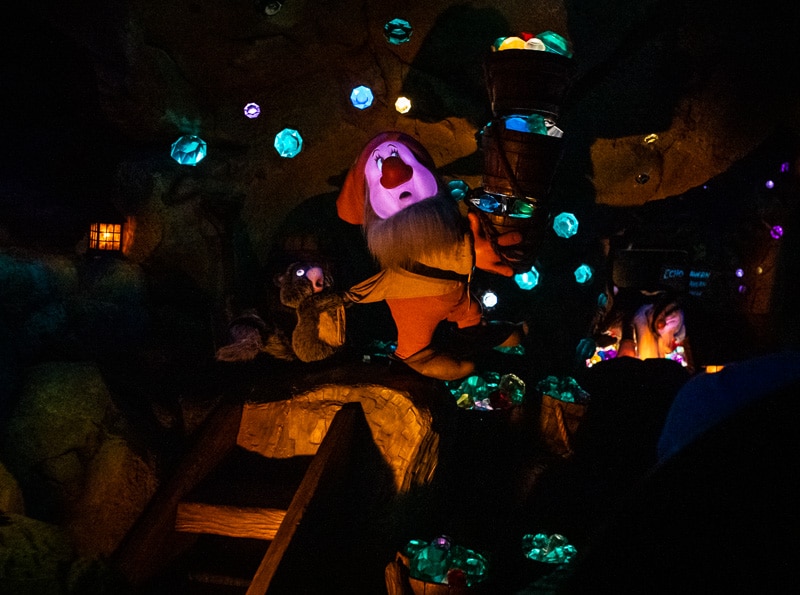
One annoyance that probably doesn’t matter to anyone but me is the branding here, which is a continuation of an ongoing issue with Walt Disney World. Sort of like mixing characters from Aladdin and Cars for the paid FastPass replacement (and not giving everything a concise name) or not clearly distinguishing between paid post-closing events and free perks (After Hours v. Extended Hours) with catchy branding.
When it comes to Annual Pass names, Silver, Gold, and Platinum made sense and were intuitive. These tiers do not. It feels like Disney pulled from a grabbag here, with a bunch of random generic-but-Disneyesque concepts represented. Perhaps I’m simply not sufficiently versed in the character hierarchy, but who ranks higher–Pixies or Pirates? And does anyone want a pass named after either?! Perhaps Disney could name APs after jobs Mickey Mouse has held: Little Tailor, Wasteland Painter, Steamboat Captain, and Sorcerer. (No? Not any better? Okay.)

As for the price increases, not a ton of commentary there. The most annoying aspect of this is it’s another instance of Walt Disney World charging more but offering less. It’s the principle of it that bothers me here–in the grand scheme of cuts and increases, these new-look APs don’t crack my personal top 10.
Reasonable minds may differ on this, but paying separately for PhotoPass or water parks (and more) isn’t a huge deal to me and I suspect a majority of Annual Passholders will opt against purchasing those add-ons. While they unquestionably do have value (and thus so does their absence), it’s not as significant for us as the percentage price increases suggest. Assigning those a more moderate value makes the overall increases more palatable.

Out of all Walt Disney World’s types of price increases, the three that bother me least are anything VIP (let the wealthy ‘subsidize’ the parks), merchandise (totally optional/unnecessary), and Annual Passes.
Even though we are Annual Passholders and are thus personally impacted, I would far prefer AP prices increase than regular tickets. I know it’s not an either/or thing, and Disney will absolutely increase both. However, in my ‘pie in the sky’ perfect world scenario, single day tickets would be significantly cheaper, to make a ‘rite of passage visit’ more accessible to more kids of a broader range of economic backgrounds. APs would be more expensive to offset that, since no one “needs” to visit Walt Disney World multiple times per year. But again, that’s just idle idealism. I’m very aware that’s not even close to reality.

Back on Planet Earth, I realize prices are going to keep increasing on Walt Disney World because demographics is destiny. Disney Vacation Club keeps growing, Walt Disney World has a ton of diehard fans all over the world, and Central Florida’s population keeps soaring. Osceola County grew by 45% between 2010 and 2020, while Orange County grew by 25%.
That last point is probably the most relevant–and had been true for several years before “Zoom Towns” entered our collective vernacular. If you’ve seen any of those ‘fleeing to Florida’ stories in the news, you’re undoubtedly aware that this trend has only accelerated in the last 3 years. Many of these new Florida residents are families leaving the Northeast and Midwest who are more enthusiastic about Disney than longtime locals.
If new home prices and construction around Walt Disney World are any indication, these transplants are also on the more affluent end of the spectrum. Behind Magic Kingdom in Windermere and Winter Garden, there’s been a proliferation of subdivisions with no end in sight. Construction on expensive homes has been booming throughout the last decade and is still going strong.

Ultimately, probably not very exciting analysis on the changes to Walt Disney World’s Annual Passholder program. With most other recent news, I had a pretty clear expectation as to what would cause confusion, excitement, and anger. Here, I’m truly at a loss.
It’s difficult to gauge how much other regulars value things like PhotoPass and water park access, or having to pay extra for line-skipping via Lightning Lanes each day that you want to use the Genie+ service. It’s entirely possible the consensus response to this could be one of relief that APs are once again going to be sold and indifference to pricing, anger at the percentage increases once everything else is tallied up, frustration about park reservations, or something different entirely. Really curious to see the reactions to this Walt Disney World news.
Planning a Walt Disney World trip? Learn about hotels on our Walt Disney World Hotels Reviews page. For where to eat, read our Walt Disney World Restaurant Reviews. To save money on tickets or determine which type to buy, read our Tips for Saving Money on Walt Disney World Tickets post. Our What to Pack for Disney Trips post takes a unique look at clever items to take. For what to do and when to do it, our Walt Disney World Ride Guides will help. For comprehensive advice, the best place to start is our Walt Disney World Trip Planning Guide for everything you need to know!
What do you think of Walt Disney World’s new Annual Passes? Disappointed by the price increases, blockout dates, or having to make reservations? Thoughts on the new AP names? Do you expect the Disney Park Pass reservation system to be retired at some point, or continue forever? Agree or disagree with our assessments? Any questions we can help you answer? Hearing your feedback–even when you disagree with us–is both interesting to us and helpful to other readers, so please share your thoughts below in the comments!